Collaborating for peace: Namene at the Paris Peace Forum
The sixth edition of the Paris Peace Forum, held on 10 and 11 November gathered leaders and actors from all spheres, dedicated to advancing solutions towards peace and better global governance. As Namene’s Head of Climate, I was honoured to attend the event, along with four of my colleagues, to showcase Namene’s work as a purpose-led company.
At Namene, our focus in on making clean technology accessible to those who are neglected by current energy and utility models. We were selected to attend the Forum specifically to discuss how we use carbon finance to discount the price of our high-quality solar products and make them affordable and accessible to off-grid and low-income families in Africa – contributing in turn to ending energy poverty and climate inequality.
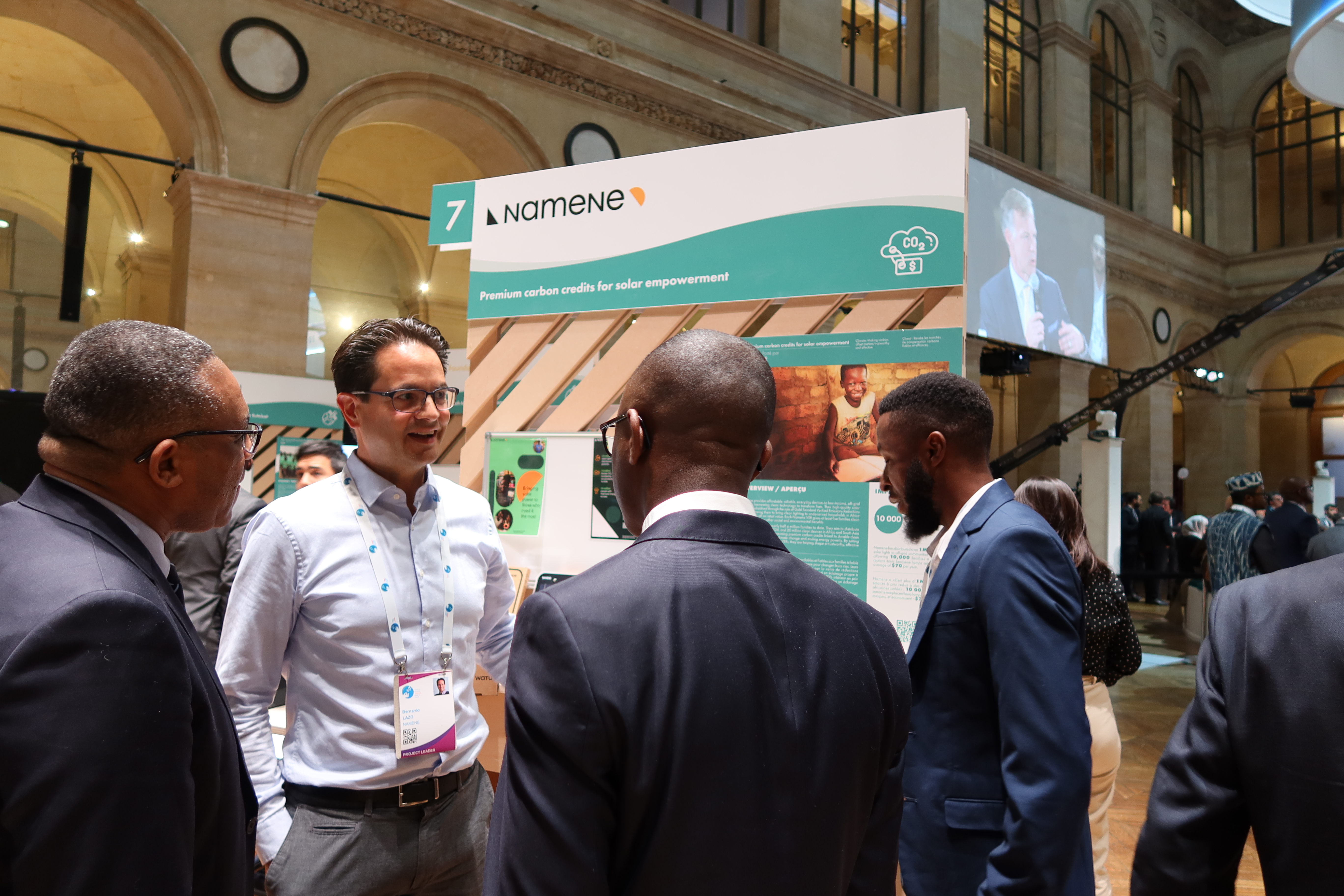
Namene Head of Climate Bernardo Lazo at the Namene stand in the Space for Solutions.
But attending such a high-level event and meeting people from all sectors has also helped me reflect on the multi-faceted and interconnected factors of peace, and better understand the possibilities for collaboration to secure a more stable world. I learnt a lot and met a diverse range of inspirational people.
Here is what will stay with me.
Peace requires a whole-of-society approach
‘We cannot save the planet with only a quarter or half of the people in the world working together. We need the majority.’
Mia Amor Mottley, Prime Minister of Barbados
Sectors such as culture, technology, politics, nature and sport should not be seen in isolation, but as inter-dependent parts of a whole needed to address the challenges society and nature are currently facing. All sectors were represented at the Forum, and most discussions made obvious the case and opportunities for collaboration.
In our case, we rapidly identified meaningful possibilities with other projects present at the event – for example by supplying solar head torches to organisations working on conflict minerals to improve the working conditions of artisanal miners; cooperating with companies which use satellite data and technologies to create mobile WIFI spots to serve remote rural communities in Sub-Saharan Africa; or
providing our lights as reliable and affordable sources of light to communities in Lebanon that currently face conflict, disruption and power cuts.
Several talks I attended stressed the importance of learning from others and listening to different perspectives and opinions. This may sound obvious, but openness of heart and mind is more than ever needed to counterbalance the increased polarisation that threatens peace and our planet.
We need to involve younger generations now
“Children can be agents of change on climate action, so give us a voice.”
Francisco Vera
The Forum delegate whose words I will remember the longest was probably the youngest in attendance.
Francisco Vera, a 14 year-old Colombian youth environmental activist, talked about the importance of recognising children as the main victims of climate change, and of the necessity for them to be involved in shaping the solutions.
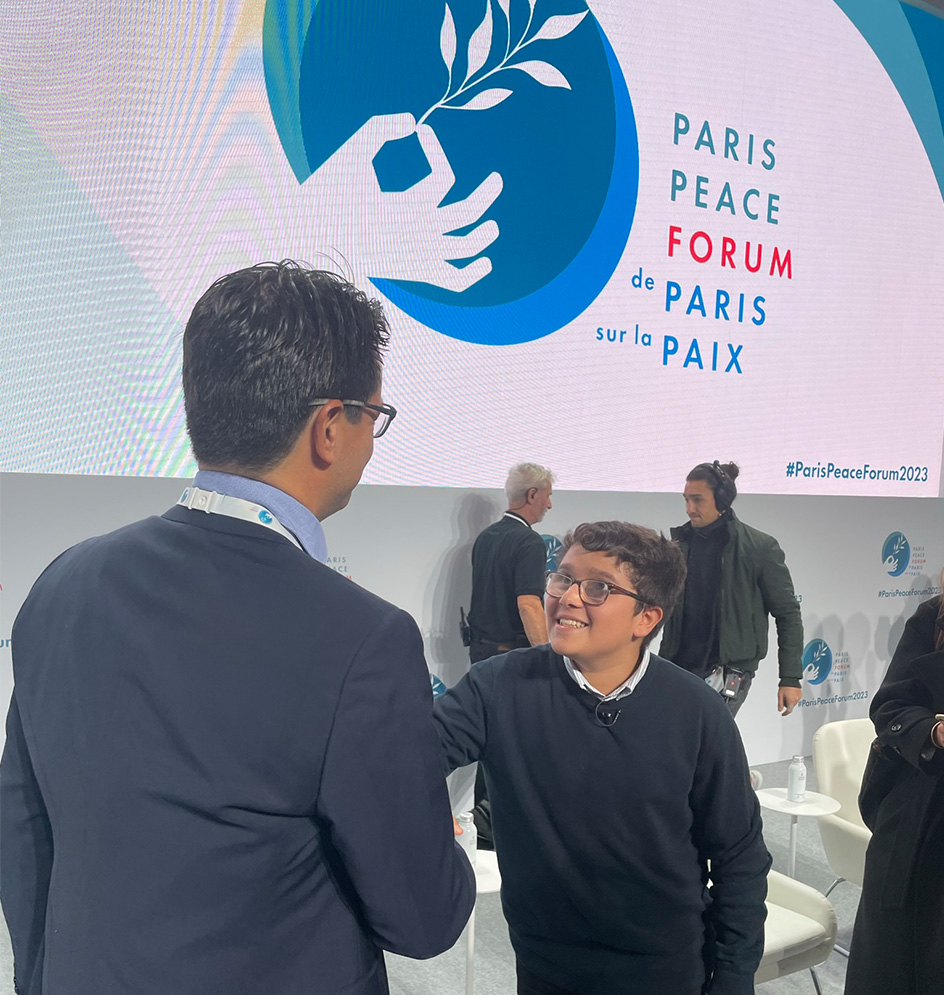
Meeting 14-year-old Colombian youth environmental activist Francisco Vera.
His address stuck with me because Francisco was born in 2009, the year of COP 13 in Copenhagen – where hopes for a global climate deal were replaced with no actionable outcomes and an enormous missed opportunity. It took another six years to bring all parties together to reach the Paris Agreement. And eight years on, we are still way off the path to 1.5C, with the effects of climate change wreaking havoc in all parts of the world.
While we could dwell on the time wasted and the chances missed, Francisco is not waiting to step up and make his voice heard – and neither should any of us. Inaction and silence make us complicit to the failure to address the climate and biodiversity crisis, injustice and inequality. Whether as world leaders at COP28, or in our professional and personal lives, we all have the power to change things now, especially if we listen to each other and collaborate.
“Approximately 1 billion children are at an ‘extremely high risk’ of the impacts of the climate crisis”. – UNICEF
Playing our part for peace
I have returned from Paris with renewed enthusiasm and determination to deliver Namene’s purpose to empower every community through clean technology, and to foster new partnerships to realise our goals – from removing harmful sources of combustion from Sub-Saharan homes to creating jobs in areas with limited economic prospects, and from enabling children to study after dark to keeping families safe from fires and respiratory diseases.
Our model shows that with the right level of ambition and commitment, we can accelerate and scale a fair and inclusive energy transition by combining simple, sustainable and durable technology with carbon finance. Having attended the Forum, I have an even better sense of the part we can play in a greater ‘whole’ that fosters peace and prosperity, and of how to find the synergies that we will help us build on what we have achieved to date. So if you’d like to explore how we can work together for a more peaceful, sustainable and equitable world, please get in touch.
Namene’s impact to date
- Through our Gold Standard certified carbon projects, we have distributed over 1 million solar lights in the past two years across Namibia, Zambia, Zimbabwe and Lesotho, and deployed another 500k through commercial sales.
- Over 650,000 families now have a clean and reliable light in their homes, saving up to $6 a month from avoided spend on kerosene or candles. In total 4.3 million people are now benefiting from our products. – Through our partnership GlobalMedic, over 200,000 of our lights have reached people affected by natural disasters and conflict across 26 countries since 2019.
- Since we started operations, Namene solar lights have avoided nearly 1.5M tons of CO2.
We are working to launch or distribute new utility products such as a portable battery pack and energy-efficient cookstoves next year – with plans to impact the lives of 40 million people in Africa and South Asia by 2030.
…And the work that remains to be done
- Over 675 million people still live without access to electricity and 2.3 billion without access to clean cooking.
- If no additional efforts and measures are put in place, some 660 million people, mostly in Sub-Saharan Africa, would still be unserved in 2030 (IEA 2022a). Almost six out of ten people without access to clean cooking in 2030 would reside in Sub-Saharan Africa.
- $30 billion worth of annual investment is required to achieve universal electricity access by 2030
Proudly showcased at
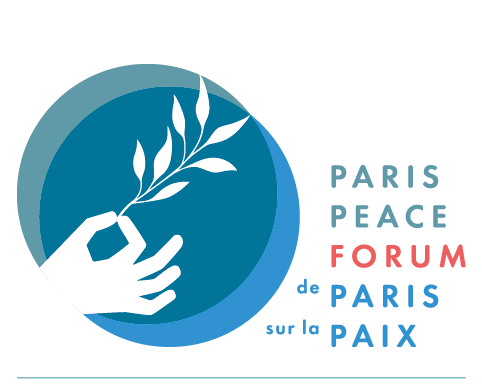
Related Stories
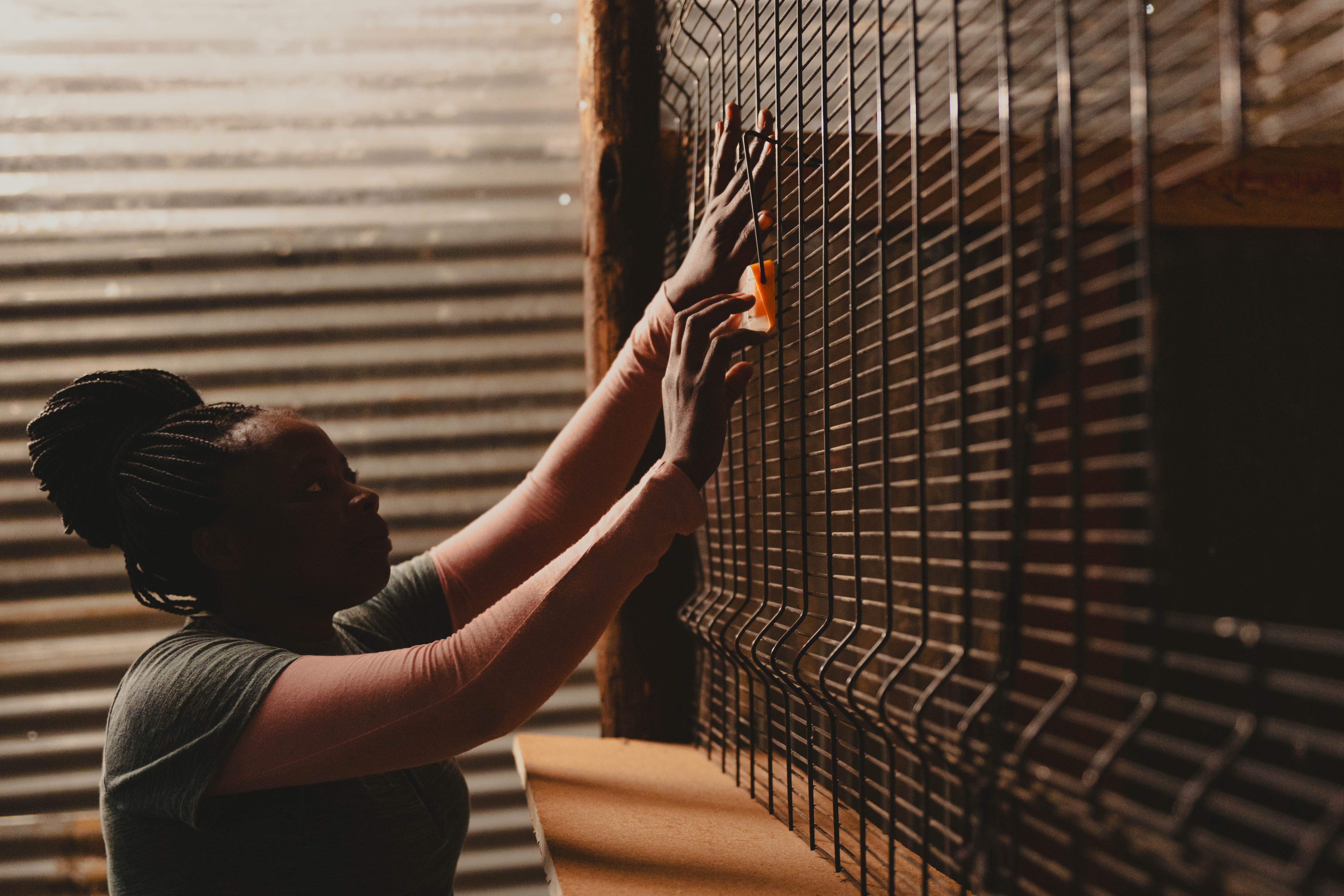
Drive Sustainable Change with Namene Carbon Credits
As the urgency of climate change grows, businesses can take responsibility for their emissions and meet sustainability goals with Namene's Carbon Credits.
Read More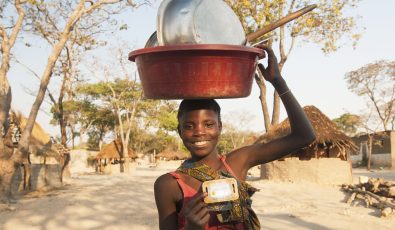
Empower women to power Africa: women driving the energy transition
At Namene want to honour and champion the essential role women play by connecting their communities to energy access, becoming solar entrepreneurs and leading the charge in energy companies.
Read More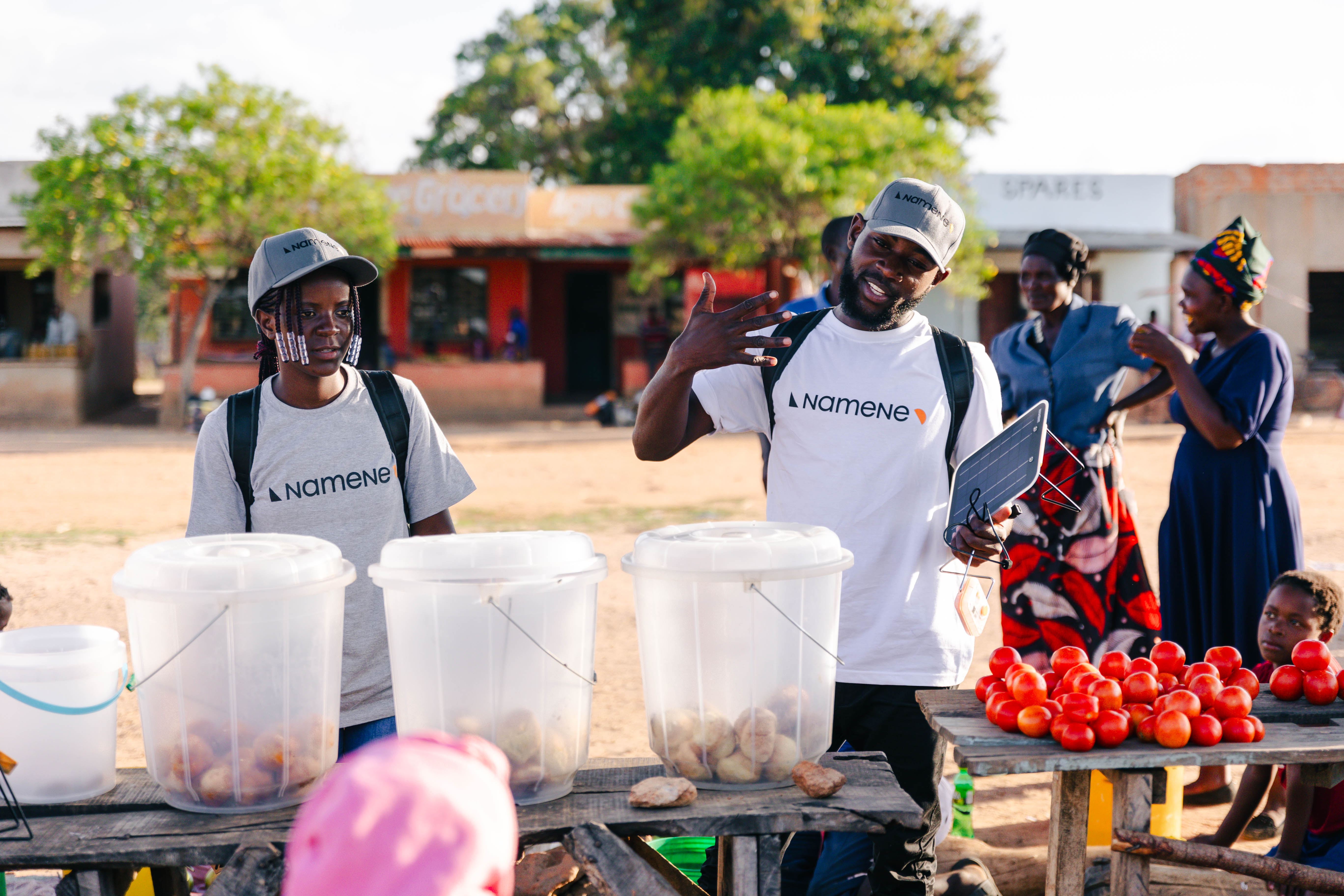
How Namene Does things Differently
Zambia Country Director, Chanda Mulenga shares lessons and strategies that have enabled our success deploying solar lights to some of the most remote communities.
Read More